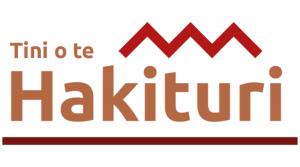Tini o te Hakituri
Identifying Solutions for Using Personal Monitoring to Support Workers in Hazardous Industries
Finding a way of keeping workers safe in high-risk and hazardous environments is a top priority for New Zealand’s outdoor-based industries. Current industry-standard monitoring systems cannot reliably predict fatigue and hazard risk as they do not capture any information about a worker’s current activity and environment. They also have poor buy-in from workers who are unwilling to be monitored in this way due to the ethical dilemmas around data use and privacy.This project will develop an innovative, ethical and evidence-based wearable monitoring approach suitable for the New Zealand workforce. It is our hypothesis that data ownership and control will improve worker engagement, therefore improving workplace safety and wellbeing.
This project proposes to empower workers with ownership of their personal data collected during workplace activities following the philosophy of Te Mana Raraunga (the Māori Data Sovereignty Network). Māori are disproportionately affected by work-related injuries; this research embraces and applies cultural philosophies and delivers health and safety benefits for all workers. The resulting increased worker safety will have significant economic benefits to New Zealand’s high-risk industries.
Our New Zealand-best science team is collaborating with major outdoor-based industries to address this hypothesis. Co-designed with workers, active Māori investigators and in partnership with Māori organisations ensures treatment of worker data that respects both its cultural (living tāonga) and its commercial value (data ownership). We will develop a solution that uses incoming data from wearable technology worn by workers which will be analysed along with contextual information to provide live feedback to the workers throughout the day.
Project Contact
Judy Bowen (jbowen@waikato.ac.nz)
Annika Hinze (hinze@waikato.ac.nz)
Rangi Matamua (rmatamua@waikato.ac.nz)
Project Team and Collaborators
Jemma Konig (jemma.konig@waikato.ac.nz)
Centre for Health
Nic Jessop (Worksafe)
Jeremy Zolnai-Lukas
Relevant Academic Publications
J Bowen and A Hinze, “Smarter Software Engineering Methods for Smart Environments”, Proceeding of HCI Engineering 2019: 2nd Workshop on Charting the Way towards Methods and Tools for Advanced Interactive Systems (CEUR-WS) at EICS’2019, July 2019
H Ziekow, A Hinze, & J Bowen (2019). “Managing Application-level QoS for IoT Stream Queries in Hazardous Outdoor Environments”. IoTBDS Conference, May 2019 pp 223-231, Heraklion, Crete.
Hinze, A., Timpany, C., Bowen, J., Chang, C., Starkey, N., & Elder, H. (2018). Collecting sensitive personal data in a multi-cultural environment. In 32nd BCS Human Computer Interaction Conference (BCS HCI 2018). Conference held Belfast, Northern Ireland. doi:10.14236/ewic/HCI2018.71
J Bowen, A Hinze, & C. Griffiths (2017). “Investigating real-time monitoring of fatigue indicators of New Zealand forestry workers”. Accident Analysis and Prevention, Elsevier, in press, doi: 10.1016/j.aap.2017.12.010
C Griffiths, J Bowen, A Hinze (2017) “Investigating Wearable Technology for Fatigue Identification in the Workplace”. Human-Computer Interaction – INTERACT 2017 (LNCS 10514), pp 370-380, doi: 10.1007/978-3-319-67684-5_22
J Bowen, A Hinze, C Griffiths, V Kumar, and D Bainbridge (2017) “Personal data collection in the workplace: ethical and technical challenges”. 31st British Computer Society Human Computer Interaction Conference (HCI’17), doi: 10.14236/ewic/HCI2017.57
Griffiths, C. (2016). Investigating tools and methods for data capture of forestry workers. Master’s thesis, University of Waikato. hdl.handle.net/10289/10103
A Hinze (2016) “Smart Landscape: The Rugged Internet of Things”. Report from Dagstuhl Seminar 16341 Integrating Process-Oriented and Event-Based Systems, DagRep.6.8.21
J Bowen, A Hinze, SJ Cunningham & R Parker (2015). Evaluating low-cost activity trackers for use in large-scale data gathering of forestry workers. In Australian SIGCHI Conference (OZCHI), pages 474–482. ACM.
J Bowen, A Hinze, and SJ Cunningham (2015) “Into the woods”. Workshop on Human Work Interaction Design (HWID): Design for Challenging Work Environments, Interact conference
Keynotes and Presentations
J. Bowen “Wearable Technology and Personal Monitoring – Evidence and Ethics” Public Lecture, Tauranga, 19 August 2019
A Hinze “Tini o te Hakituri, Project Overview” Presentation at Forestry Health and Safety meeting, July 2019
A Hinze “Personal Monitoring to Support Workers in Hazardous Industries” Presentation at TechWeek Hamilton May 2019
A Hinze “Personal Monitoring: Arguments for a different Block chain use case” Keynote at IEEE International Conference on Open Source Systems and Technologies (ICOSST) December 2018
A Hinze “Personal Monitoring to Support Workers in Hazardous Industries” Seminar Presentation at University of Otago Seminar 3rd December 2018
J Bowen “Identifying Solutions for Using Personal Monitoring to Support Workers in Hazardous Industries” Presentation at the Health and Safety Group meeting at University of Waikato, 2019
Hakituri in other News
Waikato University News — Nice work if you can get it — an article about our research programmer Jeremy Zolnai-Lucas, 13 August 2019
Radio New Zealand Interview — Annika Hinze: Smart shirts and other ways to improve forestry worker safety 4 July 2019
Fuseworks Media via Voxy — Waikato at Fieldays, including Hakituri Smart Shirt, 6 June, 2019
Radio New Zealand Interview — Judy Bowen: The future of wearable tech, 29 December 2018




